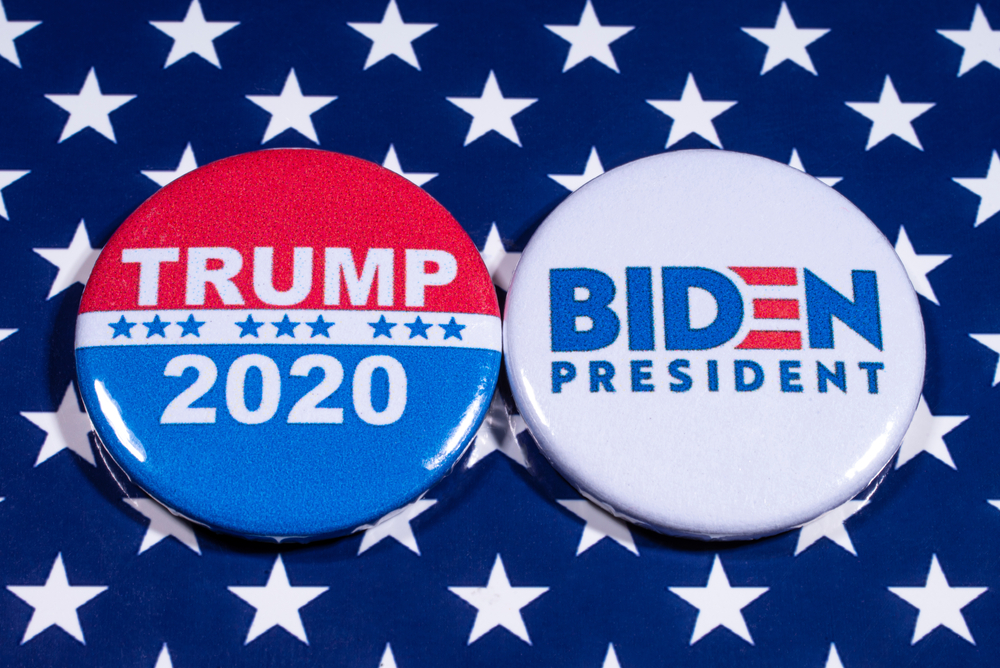Business
Why The Presidential Debate Could Send The Market Lower

On the eve of the first debate between President Trump and Democratic challenger Joe Biden, investors are eagerly waiting to hear how each candidate will address a handful of topics that could influence the markets.
The market will likely react to a candidate's likelihood of helping or hurting the markets. This depends on who people perceive will have the stronger performance.
In a note to clients, Rebecca Felton, a senior market strategist at RiverFront Investment Group, said a second term for President Trump is viewed as a positive catalyst for stocks, as that would keep the 2017 corporate tax cuts in place. Trump would also continue to stand up to China and push for more infrastructure spending.
Many view a Biden victory in November as bearish for the stock market. He has repeatedly called for higher taxes on corporations and individuals making more than $400,000 per year. Felton said he is expected to also try and increase regulations on a handful of industries and sectors. This includes banks, energy and healthcare.
Felton says the market may not immediately react after the debate is over. However, the polls conducted after the debate will give us our first indication of what market participants expect.
“The debate may not see an immediate reaction per see,” said Felton. However, “where you might see a reaction is in the post-debate polling data.”
The Effect of Debates
According to Dow Jones Market Data, the market doesn’t react too much to the first debate. Although, he says it is the most-watched. In the election years since 1960 that had presidential debates, the S&P 500 slid -0.14% the day after the first debate.
Felton says that a Biden victory would typically indicate tougher times for businesses. However, she doubts he would do anything drastic given the economic conditions the country is facing.
“If we have a Democratic administration come in, typically we would say that’s not going to be as favorable for business…but I can’t imagine we’re going to see huge changes that we think would affect the economy when the economy is suffering so much from COVID.”
Possible Uncertainty and Volatility in the Market
Investors appear to grow increasingly worried about a contested election that may take weeks to determine a winner. The markets hate uncertainty. If the polls get even closer leading up to election day, we could see a dramatic spike in volatility.
“Political discord and uncertainty have been one of the many things that have defined 2020, and this trading variable will only grow more relevant as the first presidential debate looms and the election approaches,” wrote Ian Lyngen and Jon Hill of BMO Capital Markets in a recent client note.
Kristin Hooper and Andy Blocker of Invesco said investors also want to hear more about Biden’s tax plan.
In a client update they said investors will “want to hear which taxes in the Biden tax plan he is committed to implementing, and whether or not the state of the economy will impact his timing.”
Investors looking to position their portfolios for increased volatility should adopt a barbell strategy. This is according to Victoria Fernandez, chief market strategist at Houston-based Crossmark Global Investments.
She has been advising clients to maintain exposure to large-cap growth stocks, trimming positions that had become excessively overweight before the September pullback. She also suggests building larger positions in staple-like stocks.
Up Next:















